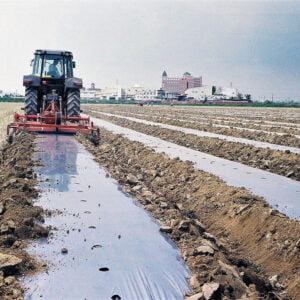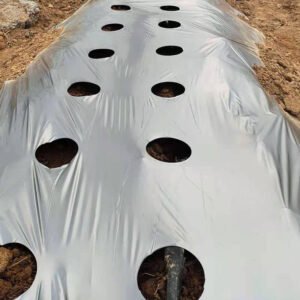Mulch film is a valuable tool in modern agriculture and gardening practices, offering a range of benefits that include weed suppression, moisture retention, temperature regulation, and improved crop yields. However, like any agricultural tool, mulch film requires proper care and maintenance to ensure its longevity and continued effectiveness. In this article, we will explore the importance of maintaining mulch film and provide valuable tips to help you extend its lifespan and maximize its benefits.

The Importance of Mulch Film Maintenance
Mulch film serves as a protective barrier between the soil and the environment, helping to create optimal growing conditions for plants. While mulch film is designed to withstand various weather conditions and stresses, neglecting its maintenance can lead to a decrease in its effectiveness and shorten its lifespan. Proper maintenance not only prolongs the life of the mulch film but also enhances its performance, resulting in healthier plants and higher yields.
1. Installation
Proper installation is the first step in ensuring the longevity of your mulch film. Before laying down the film, prepare the soil by removing weeds and debris. Smooth out the soil surface to eliminate any bumps or uneven areas. This will help prevent punctures or tears in the mulch film during installation.
When unrolling the mulch film, handle it with care to avoid unnecessary stress. Secure the edges of the film using soil, rocks, or plastic pins designed for this purpose. Properly anchored edges prevent wind from lifting the film and causing tears. Additionally, ensure that the film is evenly stretched across the soil surface to prevent sagging or pooling of water.

2. Regular Inspection
Frequent visual inspections are essential to catch any issues early and address them promptly. Check for signs of wear and tear, including punctures, holes, or thinning areas. Pay special attention to the edges and corners, as these are more susceptible to damage. Address any problems immediately by patching or replacing damaged sections to prevent further deterioration.
3. Weed Control
One of the primary benefits of mulch film is weed suppression. However, weeds can still emerge in the gaps between film sheets or through small tears. Regularly inspect the area for weed growth and promptly remove any that appear. Weed growth not only competes with your crops for nutrients and water but can also lead to further damage to the mulch film.
4. Irrigation and Drainage
Proper irrigation is crucial to the health of your plants and the longevity of the mulch film. Ensure that your irrigation system delivers water evenly and consistently to the plants. Over time, uneven watering can lead to the formation of puddles or dry spots that can degrade the mulch film. Additionally, check for proper drainage to prevent water accumulation under the film, which can create a breeding ground for pests and diseases.

5. Cleaning
Regular cleaning helps maintain the reflective properties of mulch film and prevents the buildup of dirt and debris that can harbor pests and diseases. Gently sweep or rinse the film to remove dust, dirt, and organic matter. Avoid using abrasive tools or harsh chemicals, as these can damage the film’s surface.
6. UV Protection
Mulch film is often exposed to sunlight, which can lead to degradation over time. Choose mulch film with UV stabilizers to enhance its resistance to ultraviolet radiation. Despite UV protection, it’s essential to monitor the film for signs of UV-related deterioration, such as brittleness or discoloration. If you notice these signs, consider replacing the film to maintain its effectiveness.
7. End-of-Season Removal
At the end of the growing season, carefully remove the mulch film from the soil. This process requires caution to avoid damaging the film. Inspect the film as you remove it, and if it’s still in good condition, you can store it for future use. If the film is extensively damaged or worn, dispose of it properly to prevent environmental contamination.

Conclusion
Mulch film is a valuable investment in enhancing crop growth and yield, but its benefits can only be maximized through proper maintenance. Regular inspections, careful installation, weed control, appropriate irrigation, cleaning, UV protection, and responsible end-of-season removal are all critical components of mulch film maintenance. By following these tips, you can extend the lifespan of your mulch film, reduce the need for frequent replacements, and enjoy the long-term benefits it provides to your garden or agricultural operation.